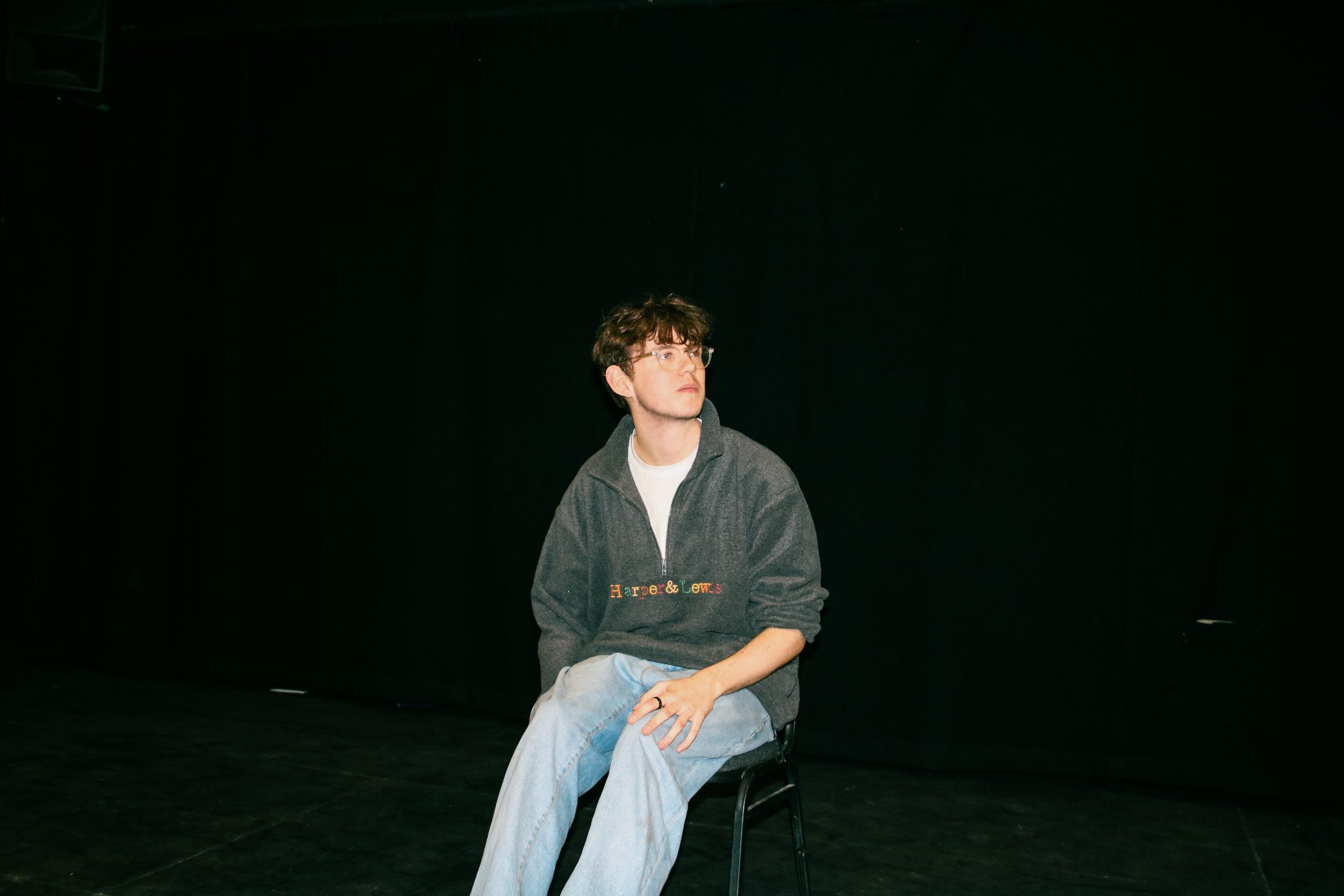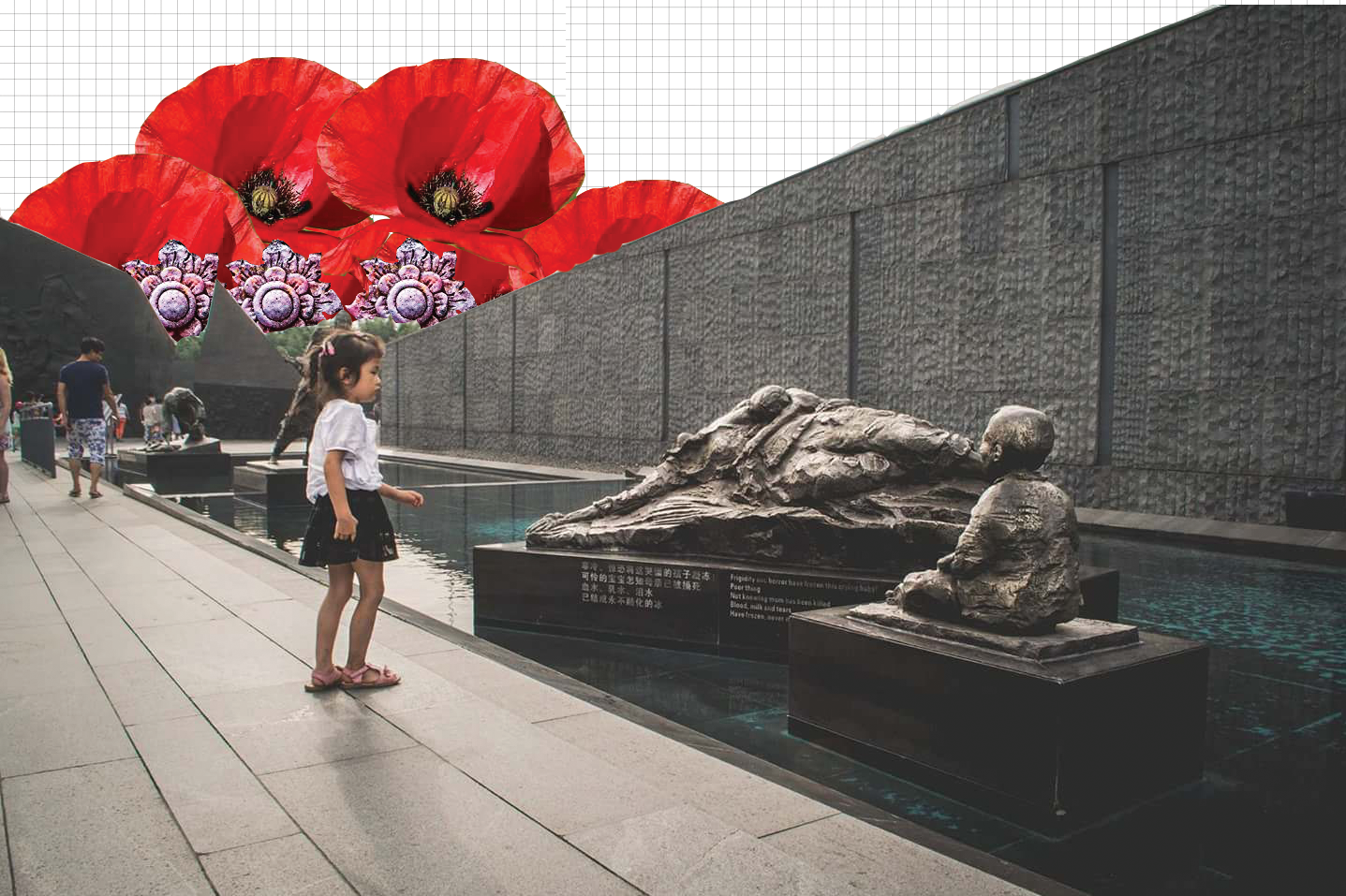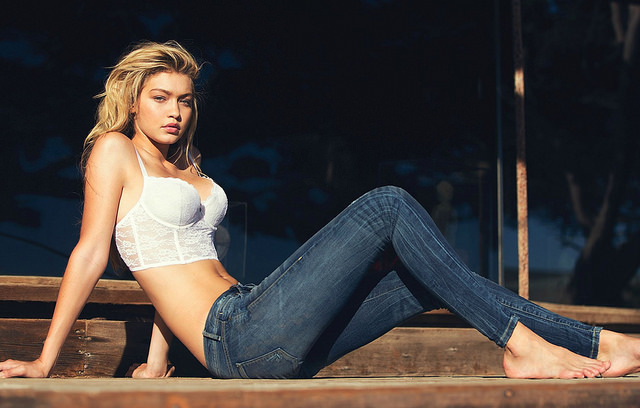
Review: Cruelty
Content warnings: suicide, gun violence, death, self-harm, exploitation
Climbing the stairs of the Burton Taylor studio for Cruelty, Gabriel Blackwell’s debut play, I feel like I might be at Bridge Thursday. The studio is bathed in lilac lighting and Beyoncé’s Heated booms over the speakers. Julia Males, the play’s sound director (who happens to be on the Features team), waves from behind the sound decks: she is our DJ for the night.
Lighting changes mirror set changes as the protagonist Oli (Luke Nixon) guides the audience on a tragicomic odyssey around his city. The one-man show opens with him seated in the single chair occupying the stage, dressed in an unassuming combination of brown hoodie, jeans, and white trainers. Breaking the fourth wall, Oli addresses his audience conversationally, narrating the story of his life in a tone reminiscent of a stand-up comedian. But this levity is short-lived: later in the play, as the scene shifts from his flat to the city outside, his narration becomes more like a confessional. These changes are done entirely self-consciously: Oli refers to his act as “one man bares all in a tiny black box”. Before the start of each scene, he addresses the audience like an actor in rehearsal: “Imagine you are a character…”. These prompts are designed to make the audience uncomfortable with their complicity in watching the play: we must successively imagine a gunshot in a club, an orgy at a renaissance banquet, stoning a baby to death, the cliffs where Oli’s father killed himself. He narrates the “little shows” of the city with razor-sharp social commentary, delivered with hyper-sexual jauntiness and frequent winks, but he can’t quite patch over these macabre images, and disturbingly, his fascination with these violent, bloody acts.
The play departs from Oli’s flat for a tour around the city. Much of the action is actually set in a club, brought to life by Males’ sound design and Olivia Cho’s lighting. The audience laughs knowingly when Oli declares with disgust, “on a Thursday night, the club is a fifty-fifty split of rats and children.” Amidst the neon lights and music, sitting cramped together in the small space, you feel as if you could be part of the stickiness and sweat. Things go awry occasionally – a vodka bottle rolls out from under the chair; Nixon can’t open a bottle of poppers – but the narrative structure lets him take this in his stride, improvise, and make it a moment of comedy. The dialogue is quick – so quick that, scribbling furiously to try to capture Cruelty for this review, I’m worried I’ll miss the show.
Throughout the show, the play probes its own dichotomies: whether this city is ‘nasty’ or beautiful, the morality of watching and being watched. Above all else, however, Oli’s story centres on the vulnerabilities of grief. The green-lit beach scene is a peaceful counterpoint to the city, and Oli tells us his father loved the cliffs – so much, Oli says, his now-familiar humour gone, that he disappeared into the sea foam one night. The influence of Oli’s father on his life emerges gradually in loving snippets: the audience is soon aware that the play is really about Oli’s relationship with grief over his father’s death. His father, he says, couldn’t tell the difference between what was real and unreal: he sobbed at Marley and Me and didn’t like a sad ending. Oli, too, uses performance as escapism. Early in the play, he refers to dancing as something you do when you don’t want to think and comments “I’m good at that.” He takes pleasure in his commentary on others. But this imagined power dynamic is inverted and made sombre when the play discusses Oli’s exploitation by an older man.
These meta-theatrics, initially a source of comedy, become poignant and tragic by the play’s end. It’s here that the intricate construction of the play is most clear. Littered amongst the starlets and pop culture references – Louis Theroux, Lizzo, Oli’s banker brother whose home screen reads “Get shit done, King” – are self-conscious reflections on the play itself, on Oli’s audience, and on his own desperate performance. We find ourselves watching, even enjoying, a young man’s loneliness and grief. When his brother’s voicemail breaks the theatrical suspense – tells him he’s worried that Oli keeps reworking his dad’s death into something exciting, something unreal – Oli’s narrative, unchallenged thus far, is destabilised and breaks down. In the final prompt, the audience is reminded that “you’re not a character, it’s really going to hurt.” We confront the horror of his father’s suicide, stripped of the sea-foam’s veiling mysticism, for the first time. The audience is once again cast as voyeurs: “just enough for you to feel something, just enough for you to get your fill.” Unsure what to do now, Oli’s best idea is to call Jules to turn back on the music.
Words by Anneka Pink.
Cruelty was staged by The Better Craftsmen at the Burton Taylor Studio in 5th week.







